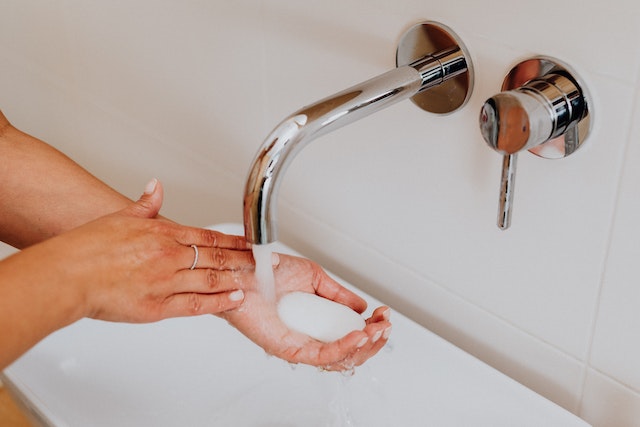You might have noticed kojic acid taking the spotlight on more than one product as East Asian skin care procedures and products have rapidly increased in popularity and started to appear in stores.
Or was it suggested to you after you acknowledged having hyperpigmentation, scarring, and skin discoloration issues? (It is frequently mentioned as a more natural substitute for hydroquinone.)
Kojic Acid and How it Works
Kojic acid, a result of the fermentation of rice and a naturally occurring product of certain fungi, treats problem areas like sunspots and acne scars.
It functions by interfering with a protein necessary for the skin to create too much melanin. Fun fact: it’s regularly used to food in supermarkets tasting good and looking fresh.
Kojic Acid: Skin Lightening, NOT Bleaching
When kojic acid products claim to be “skin lightening” or “skin whitening,” many consumers, especially those with darker skin tones, may be alarmed or perplexed. If you’re unsure whether this term refers to skin bleaching, rest assured that kojic acid won’t bleach your skin if used as recommended in safe amounts.
Unfortunately, “bleaching” and “lightening” are common marketing terms, particularly if you’re buying cosmetics marketed to the Asian and African diaspora (where whiteness is a socialized beauty ideal). As a result, both hydroquinone and kojic acid are frequently employed improperly in skin-lightening procedures.
However, inaccurate marketing does not mean that kojic acid should be discontinued. Instead, learn to understand and use it properly.
The Benefits of Kojic Acid
This component has numerous qualities that you may find advantageous for your skin because it is categorized as both an antioxidant and an exfoliator. Here are some of the known benefits and uses:
1. Lightening of age, sun, or hyperpigmentation-related dark patches
This is kojic acid’s primary use. Its antioxidant capabilities double its ability to lighten dark spots.
2. Melasma Treatment
Melasma is a skin disorder that typically affects pregnant women and results in dark areas, usually on the face. Kojic acid, usually in the form of lotion or soap, is a useful component to halt melasma in its tracks due to its melanin-inhibiting qualities.
3. Antibacterial and Anti-inflammatory
Given that kojic acid is known to have anti-inflammatory qualities, it may be able to soothe irritated, itchy skin. While it’s not Neosporin, it also has a few antibacterial qualities, so while it’s functioning, it can shield your skin from some forms of bacteria.
4. Brighten and Moisturize the Skin
Kojic Acid Soap, like kojiwhite soap, is a vegan-friendly, natural, paraben-free soap used for brightening and moisturizing the skin. Its effectiveness is known and has been reviewed by thousands of users worldwide.
4. Antioxidant
Antioxidants will set those searching for the fountain of youth on the right course. Consider using kojic acid in your routine if you want to age gracefully.
5. Dealing with Hair Removal-related Hyperpigmentation
Kojic acid can help if you suffer from ingrown hairs, razor burn scarring, or other hair removal-related problems. Apply kojic acid regularly but sparingly on the skin that has healed after ceasing the action that is irritating it, and wait patiently for your skin to return to its normal tone.
Safe Koji Use and Possible Side Effects
- Possible heightened skin sensitivity: Kojic acid may not be the best substance for people with sensitive skin. This is because studies have shown that using it can make skin more sensitive. Research on sun sensitivity is still inconclusive. Therefore, SPF should be applied when using kojic acid.
- Not advised for skin that has been wounded or damaged: Kojic acid should not be applied to damaged skin. Therefore, wait for any cuts or active acne lesions to disappear before beginning scarring treatment.
- Irritation, contact dermatitis, and allergies: Some individuals who are sensitive to this chemical may develop dermatitis or discomfort. Therefore, before incorporating this ingredient entirely into your regimen, try patch-testing to rule out any potential issues.
- Large amounts can be harmful: Kojic acid can be hazardous when administered in large doses, according to some animal studies. We don’t mention this to scare you; it would take a tremendous amount and concentration to have the same effects on people. However, most experts advise staying with formulas with a kojic acid concentration of no more than 1%.
In addition, it is advisable to avoid using powder formulations despite the fact that plenty of these items are available online. It takes precise science to combine kojic acid powder with other items. Therefore, trying to do it yourself could produce a dangerously concentrated concoction.
Conclusion
Kojic acid is an effective ingredient for helping with several issues that may arise with your skin. Using high-quality products, like kojiwhite, is a great way to start giving your skin the care it deserves.

